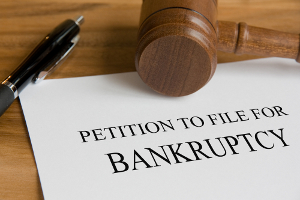 People considering filing bankruptcy are often concerned with whether they can be discriminated against for filing. Usually this concern falls into two categories: utilities and employers. The Bankruptcy Code states that utilities cannot deny a person service for filing bankruptcy. Similarly, utilities cannot cutoff existing service because their client files bankruptcy. However, they can charge a higher security deposit for future service. Debtors who do file bankruptcy must also pay utility bills that come due after the case is filed if they want the service to continue.
People considering filing bankruptcy are often concerned with whether they can be discriminated against for filing. Usually this concern falls into two categories: utilities and employers. The Bankruptcy Code states that utilities cannot deny a person service for filing bankruptcy. Similarly, utilities cannot cutoff existing service because their client files bankruptcy. However, they can charge a higher security deposit for future service. Debtors who do file bankruptcy must also pay utility bills that come due after the case is filed if they want the service to continue.
The Bankruptcy Code also prevents employers from discriminating against employees who have filed bankruptcy or who fail to pay dischargeable debt. This rule applies to both governmental employees and private employees. I have personally represented thousands of individuals in Chapter 7 and Chapter 13 bankruptcy cases, and so far, not a single client has told me that they were discriminated by an employer for filing bankruptcy or even that they suspect discrimination.
In the Eastern District of Texas, employers don’t need to be told that an employee filed bankruptcy. If the employer doesn’t check its employee’s credit report, and if the debtor doesn’t owe his employer money on the date of filing, then there is no reason that a debtor must inform his employer of the bankruptcy filing. Some districts require that plan payments be automatically garnished from the debtor’s wages in Chapter 13 bankruptcy cases. In these districts creditors will find out about the bankruptcy case if it is filed under Chapter 13. However, if the debtor believes there is a possibility that he might be discriminated against at work because of the bankruptcy case, then the debtor can ask the court to waive the wage garnishment requirement. If the court believes the debtor is sincere in believing they will be discriminated against, then the judge will usually grant these requires.